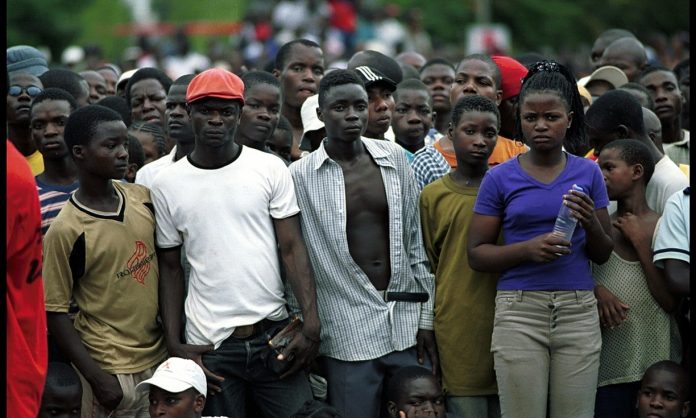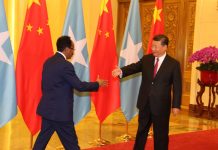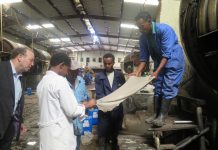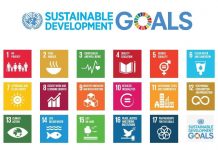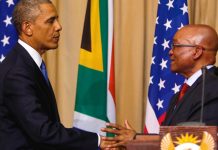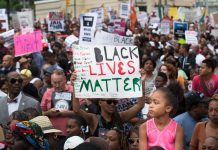During my current visit to Africa, while sitting in my hotel room, I reflected upon how and why I ended up in Africa initially and now. I remembered as a child of six years old my interest in history and how the first book I read was the “History of Greenland”. My reading habits as I grew older had me reading about Hannibal, Charlemagne, Shaka Zulu, Julius Caesar, Plato, Marcus Garvey, WEB Dubois, Maggie L Walker, Sojourner Truth, Dr. John Henrik Clarke, Malcolm X, and Dr. Martin Luther King Jr., and so many other famous people.
But there was always a thread to my interest that led to Africa. Maybe it was the history books my grandmother kept from my mother’s segregated schools in Mississippi, where she and others fled after two of my great uncles were lynched and my mother’s twin sister at age 14 was denied medical treatment because of her color and died. My family history made me interested at an early age in where we came from and why we ended up in the United States.
So as a young college student working my way through school, my first trip out of the country was on a tour of Africa. Why Africa? Because the only information I had gleaned from schools in America about Africa came from reading Edgar Rice Burroughs Tarzan books about a white ape leading an African tribe and real apes and watching Johnny Weissmuller play Tarzan in the movies. Boy was I shocked when I found out Africa was not a jungle with Africans running around naked with spears and living in huts. Over the years my search for my own roots as an African led me to read about Ethiopia and Egyptian culture and history and to discover African writers and become involved in the struggles for independence in countries like Zambia, Ghana, Kenya, and of course South Africa.
I was fortunate to spend four years as a faculty member on the campus of the College of Staten Island of the City University of New York (CUNY), where we actually had the most African students and students from other cultures than any other of the then 22 units of CUNY. I read books by Randall Robinson of TransAfrica fame and followed his early fight against South African apartheid, as well as my favorite artist Stevie Wonder leading the boycott of Sin City by international artists, and of course people like Paul Robeson, Miriam Makeba, Harry Belafonte, Sidney Poitier, Nina Simone, Sammy Davis Jr., and of course the great Fela Ransome Kuti of Nigeria. These artists worked for the freedom and opportunity for people of color and Africans, as well as African-Americans, on both sides of the continent, unlike many of our artist today who have not become involved in the struggles for equality, jobs, justice and education for our young people.
During my current visit I have seen great improvement and development on the continent. Much of the new buildings, roads, dams, retail malls and banking have expanded. Talking with my friends in West Africa and Southern Africa, I have heard the same lament about Africa’s economic development. Many of the jobs being created do not offer equal pay and opportunity for the people living in those countries, except those who are in government and certain middle class opportunities. However, the Chinese and Indians are taking the place of Europeans in the business development of Africa. I have spoken with ministers and former presidents of African countries about the challenges facing Africa today, and I thought about the correlation to the challenges facing Africans of the Diaspora.
Rather than give a litany of issues, I thought I would share my own views in conversations with people in Africa recently, as well as back home in the USA. I believe that the problems of Africa are the problems of African-Americans, or all African people in the Diaspora: so little business ownership; lack of capital; lack of use of our expertise; and a lack of understanding of how we are all related to each other, how important Africa is to the world’s future, and how we are not shaping that future as a culture of African people the way we could and should.
Many times I have heard people complain about various segments of the African people in the world because they are either immigrants, or “not like me”— similar to the way supporters of [U.S. Republican presidential candidate Donald] Trump complain about making America great again by going back to the way it was. Well, for people of color and African ancestry, it was not all that great.
I believe, as do many people I have spoken with, that African-Americans in particular need to work closer with Africans in Africa and in the USA to help build opportunities for all of us both in the USA and in Africa, and in other parts of the world. It is no accident that everywhere I went I saw Chinese equipment, Chinese and Indian business owners at meetings with Africans, but I saw no African-Americans. So I propose the following steps be taken to develop a strategy for Africans and African-Americans to work together for our mutual benefit:
1. African countries should provide dual citizenship to all Africans who wish to come home to the continent from wherever they are now living;
2. A think tank should be created with people of the Diaspora and of the Continent working together to develop a strategy for enhancing employment, business opportunity, and education for all Africans;
3. Africans studying in the USA should be encouraged to apply to Historically Black Colleges and Universities as well as other schools in America;
4. A fund should be established from the think tank for specific projects to be managed and funded by Africans on both sides of the Atlantic;
5. African-Americans should take more interest in our own government’s involvement in African countries. We give aid and money, but many times it is not properly used or maximized to benefit the people it is intended for, and sometimes it only contributes to further issues in those respective countries.
Which leads to why I wrote this article. I had learned from pan-Africanist thinking early on that Africa is for Africans. Well, the richest continent on our planet should be for all Africans to benefit from worldwide, with the opportunity to develop our entrepreneurial options the way other cultural groups have, and increase our wealth collectively. Until African-Americans and Africans focus on an agenda to make that happen, the question will remain, Africa for ????
Geoffrey A. Atkins is the CEO of Gredt & Associates, Inc., a Diversitas company, based in Akron, Ohio, that provides consulting services in entertainment and technology, including television, film, radio, music, and small business. He wrote the above article exclusively for AfricaStrictlyBusiness.com at our request, during his visit to Africa in April 2016.


